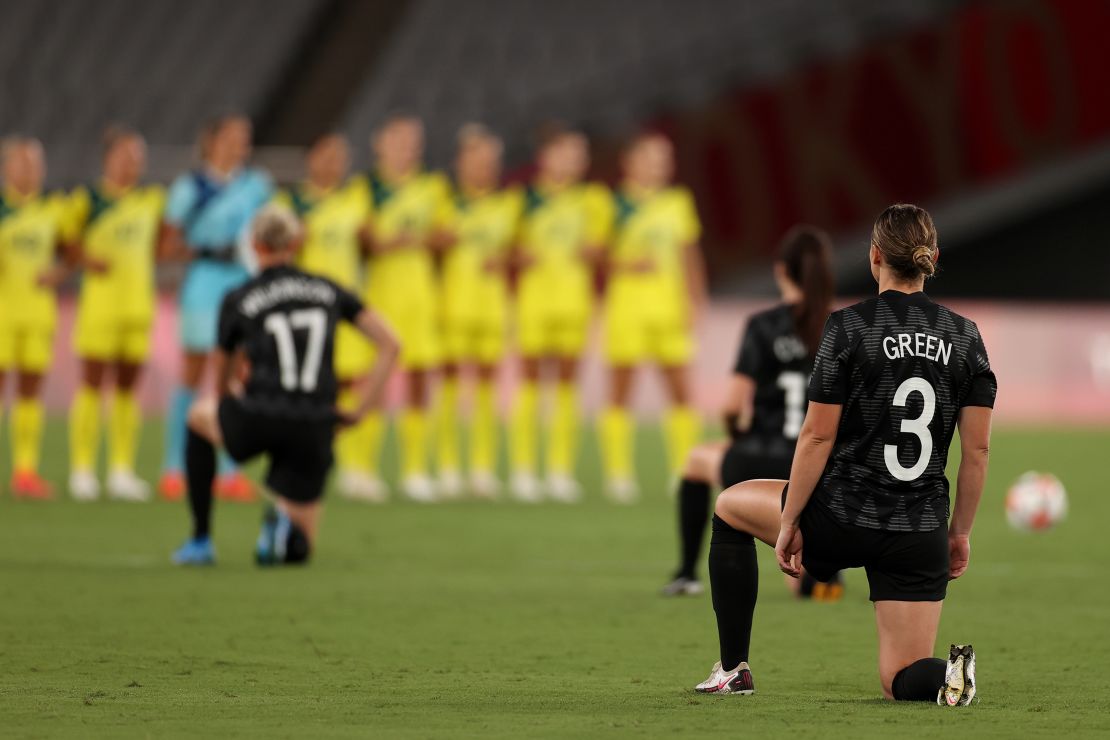Five women’s soccer teams took a knee ahead of their opening matches at the 2020 Summer Games.
Great Britain and Chile teams took a knee on the pitch before their match, and the United States and Sweden teams knelt ahead of their clash on Wednesday.
It’s been almost five years since former NFL player Colin Kaepernick knelt during a pre-game National Anthem to protest racial inequality. Since then, and especially since George Floyd’s death in police custody in May 2020, players of other sports and around the world have made the gesture in solidarity with the equality movement and against the oppression of people of color.
“For us, it feels right to stand up for human rights. There was communication with the US team,” Swedish defender Amanda Ilestedt said after the match. “It feels good to do that. It is something we stand for as a team.”

The women’s soccer team from New Zealand took a knee before their opening match against Australia. The Aussies remained standing with their arms locked together.
The Australian team posed for a pregame picture with the country’s indigenous flag.
Midfielder Tameka Yallop said after the match that the team is against racism but wanted to show support to the “broader Indigenous Australians.”
“We are obviously in support of no racism, we definitely wanted to take a stand and show our support of that, and we also wanted to represent not just Kyah Simon and Lydia Williams within our team, but the broader Indigenous Australians, and give our own Australian flare to shed light on that aspect of it as well. We just wanted to stand together for the Australian culture and the Indigenous side of us,” Yallop said.
Kyah Simon and Lydia Williams are Aboriginal members of the team.
On Wednesday, International Olympic Committee (IOC) President Thomas Bach confirmed that kneeling did not violate the organization’s rules against protesting.
“It is allowed, it is not a violation of the rules,” Bach said.
In April, the ban preventing athletes from protesting or demonstrating at the Tokyo 2020 Olympics was upheld by the IOC, but the committee later announced it was amending that.
Under the new guidelines, athletes can protest on the field before a competition or while they are being introduced, as long as the expression is not targeted “directly or indirectly, against people, countries and/or their dignity.”
CNN’s Courtney Culp and Theresa Waldrop contributed to this report.
